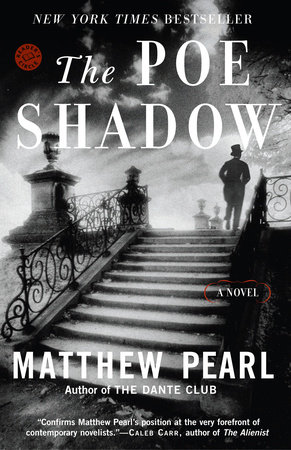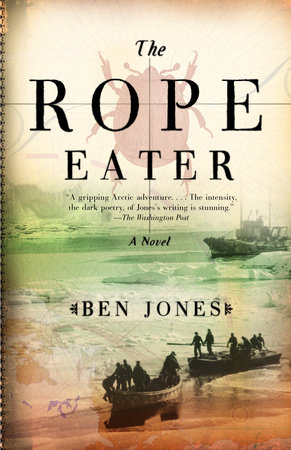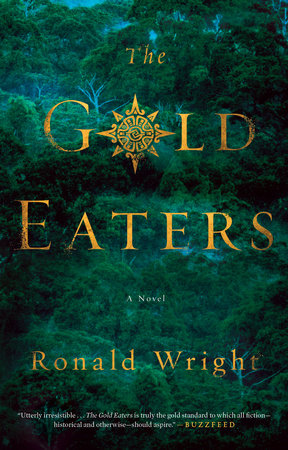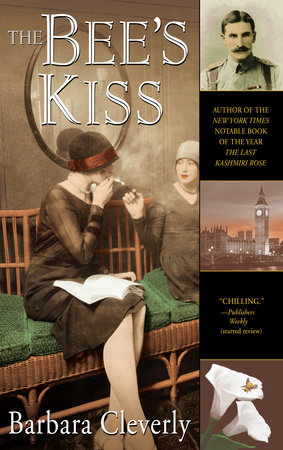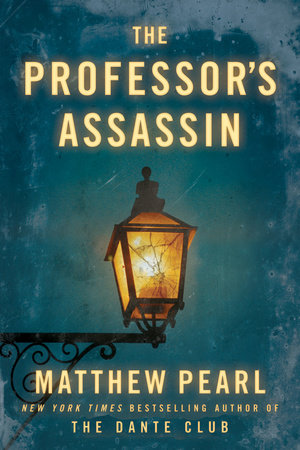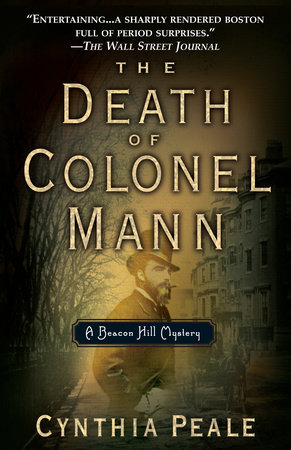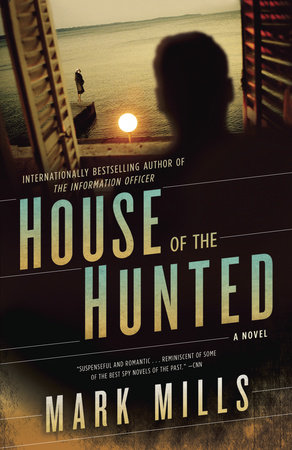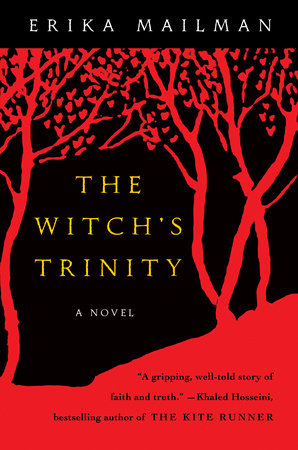A Conversation with Matthew Pearl
Q: The Poe Shadow can be read as a celebration of Edgar Allan Poe. Which came first, an enthusiasm for Poe, or your idea for the novel?
MP: My high school English teacher in junior year, Dr. Robert Parsons, assigned us some Poe stories, including The Black Cat and The Purloined Letter. Being an animal person, I had trouble with The Black Cat! I got hooked instead by The Purloined Letter, a Poe story with detective C. Auguste Dupin. I had already been a Sherlock Holmes fan, and it was eye-opening for me to “discover” Sherlock’s prototype in the form of Dupin. So my entrée to Poe was through his detective stories, and from there I read more. When it came time for me to decide on what to write as a second novel, Poe returned to my mind. If it were not for those first interactions with Poe, I would probably have been less likely to be committed to studying literature in high school and then college, and then less likely to ever write fiction. I still have my high school copy of the collected Poe — missing its covers and pretty worse for the wear. On the pages of The Purloined Letter, I wrote in big letters: RATIO SENTIAN. I was taking notes from my teacher and trying to write “ratiocination,” a word I had never heard.
Q: “Ratiocination” is an important concept in your novel.
MP: Now I know how to spell it! It’s a term that Poe uses in the second (and most challenging) Dupin tale — The Mystery of Marie Roget. The basic definition of ratiocination would be similar to “deduction”: logical, methodical reasoning. Ratiocination is a much richer and stranger word, though, exotic to the modern ear (the pronunciation is rash-eo-sen-ation), and in Poe’s vision it is a process that involves not just logic but also creativity. To me, it is the crux of Poe’s larger modus operandi: exploring imagination with great care to logic and detail, and using logic to expand imagination (some of his wildest stories — for example about resuscitating the dead through hypnotism — were so detailed they were thought true when first published).
Q: The central mystery in The Poe Shadow is the death of Edgar Allan Poe. Was his death really so strange and mysterious as the novel claims?
MP: Absolutely! Edgar Allan Poe died on October 7, 1849 while visiting Baltimore. All of the questions and puzzles about his death presented in the novel are real. First, his “lost days”: he was in Baltimore for about five days, when we don’t know why he was in Baltimore for more than a few hours (he had very concrete and important plans to be in Philadelphia and New York). Let’s call these Poe’s “lost days” since we known almost nothing about his activities or whereabouts. Second, he was found wearing ragged clothes that did not appear to be his, and holding a walking stick with a sword hidden inside (whether or not the cane remained with Poe until he was discovered is debated). Next, the little Poe manages to say once he’s found is quite odd (even for Poe!), including shouting the name “Reynolds” from his hospital bed over and over again, and crying out that his best friend would blow his brains out. He could not account for where he was or how he got there. Finally, there is strange behavior and comments by other parties surrounding him, including relatives of Poe’s in Baltimore. Poe invented the modern detective story with Dupin, and this story of his own death is worthy of the genre. Because it can never fully be “solved,” it reflects the genre and also transcends the genre.
Q: True mysteries can’t be solved then?
MP: Perhaps they can be resolved but not solved. Or vice versa?
Q: You present some historical findings about Poe’s death not previously published before The Poe Shadow. Have Poe scholars taken issue with you for seeking new conclusions about Poe’s death?
MP: I’m happy to report I’ve had enormous support from the Poe community. A long essay I wrote on Poe’s death, called “A Poe Death Dossier,” is set to appear in two parts in The Edgar Allan Poe Review, an academic journal devoted to Poe studies. Certainly, scholars of Poe — as with all scholars — don’t agree with each other about every issue, and that applies to Poe’s death, too. Part of what interests me about Poe’s death is the spectrum of different perspectives people bring to it, and the way those perspective shape our vision of Poe. I expect not all Poe scholars and readers agree with my approach and conclusions; in fact, I hope they don’t. I think respectful conflict is intrinsic to the spirit of literature. It reminds us that literary history is living and evolving and thrives on us being active participants. One important idea I hope is reflected in The Poe Shadow is that fiction can add as much to history as nonfiction does.
Q: Is writing a second book harder than writing the first one?
MP: I am grateful to my readers and my publishers for my experience with The Dante Club. When it came time for me to move on from The Dante Club, I felt lucky to be in a position where I could devote myself full time to a second novel, and the fact that The Poe Shadow has been well received makes me newly grateful. This probably goes against the grain, but I think in some ways my second novel was easier. I felt like I knew what I was doing a little bit more, and I had confidence that I could actually finish an entire novel because I’d done so before. That doesn’t make the writing itself easy — writing is always hard labor. If pressed, I would admit that writing a second novel, on the other hand, is difficult in the sense that you are more aware of the investment of time and money that other entities (publishers, booksellers, etc.) put in your work. I had already signed agreements for The Poe Shadow to be published before I had written a word of it. This is very different than writing in private or even, as with my first book, writing virtually in secret. Writing, itself inherently private, becomes a more public act.
Q: The Dante Club has some pretty violent sections. This novel has almost none. Was this a conscious decision on your part?
MP: I didn’t set out to avoid depictions of violence in The Poe Shadow. By the same token, I had no premeditated plan for The Dante Club to include violent scenes. The stories took their shapes organically, and one included violence and the other did not have much use for it. Also, the stories are partially grown out of the moods of their respective author subjects — I mean Dante and Poe. Dante’s Divine Comedy, and particularly the Inferno, uses violence as a way of jolting cultural, political, spiritual and artistic questions. We tend to associate Poe with horror and shocking images — and, indeed, there are terrifying moments in stories like The Pit and the Pendulum (and, for me, even more frightening tales like Berenice). However, Poe was also concerned with psychological order/disorder, and that’s the energy I chose to channel for The Poe Shadow and its protagonist, Quentin. I don’t have much interest in violence for its own sake; it should have a context, as Gregory Maguire (Wicked) stresses.
Q: Should a reader think of Quentin Clark, the novel’s main character, as a version of Matthew Pearl?
MP: The Poe Shadow has an opposite orientation from my first novel: in The Dante Club, I wrote about (mostly) historical characters investigating a fictional mystery, the Dante-inspired murders… in The Poe Shadow, (mostly) fictional characters investigate a real-life mystery, Poe’s death. This gave me the freedom to choose my characters, and so putting Quentin in a position and life stage that in some ways resembled my own was not accidental. Quentin is a young lawyer who feels dulled by his work and wants to pursue this quest — which people around him think is pretty crazy — that is connected to literature and the unknown. My own unplanned entrance into writing and the creative life came at a similarly incongruent time in my life, when I was at law school (like Quentin, people didn’t think I was being too practical either). That said, Quentin took on a life of his own and was as much inspired by other lives, real and fictional (including Poe’s own characters) as by my own. An author puts some of himself or herself in every character. But I’m not looking to explore my own life in my novels, at least not for now — I’m not that exciting!
Q: You started writing fiction while at Yale Law School. Unlike Quentin, you did not become a lawyer. Have you abandoned law for good at this point?
MP: I never practiced law (aside from one summer during law school). I have no plans to practice and, besides, I’d have to take the bar exam and that is not on the top of my to-do list. However, my strong interest in law as a cultural force continues. I am teaching a class at Harvard Law School called “The Literary Vision of Copyright.” The class examines the experience of nineteenth century writers (including Poe, Mark Twain, and Oscar Wilde) who grappled with the vague and often nonexistent legal protections for their work. These intersections between literature and reality — in this case, hard-nosed business and legal realities — are more important to shaping culture than we tend to acknowledge, in my opinion. Aesthetics of literature are never completely separate from the practical concerns of the authors and publishers of that literature.
Q: Talk about research. Was the research for this very different from the research for The Dante Club?
MP: The Dante Club was set in Boston, and nearly all research was available to me in the archives and libraries of Boston and Cambridge, which was mercifully convenient. Not so for Poe. The novel is set in Baltimore and, for one of its five sections, Paris, and these are cities I studied (in person and in books) in order to recreate. Moreover, Poe himself lived in many cities through the course of his life — Boston, Richmond, New York, Philadelphia, Baltimore — and when he died, his personal papers and possessions were destroyed or scattered. So my archival studies took me to six different states. In fact, while I was touring to speak about the paperback edition of The Dante Club, I would sometimes stop in nearby archives. This sort of comprehensive research is very important to me in creating historical fiction that I feel proud to share with readers. There was also 150 years of research into Poe’s death, and I could not have launched my own “investigation” without mining the amazing work of past Poe scholars and enthusiasts. Quentin’s middle name, Hobson, is actually an homage to one of the best Poe biographers of the twentieth century.
Q: Do you hope readers of this novel will crack open their own editions of Poe after reading this novel?
MP: Well, readers aren’t required to know anything about Poe in order to enjoy the novel, nor are there any assignments after reading it! However, I always remark how gratifying it is when I hear that readers are motivated by what I have written to seek out and read or reread some of Poe’s stories and poems (same goes for Dante). That’s the teacher in me, I guess. Book clubs that choose The Poe Shadow actually sometimes assign each member of the group a Poe story to read and report on to the rest of the group. In particular, I do hope some readers will make an effort to discover or rediscover the three Dupin stories by Poe: The Murders in the Rue Morgue, The Mystery of Marie Roget and The Purloined Letters. To this end, I have edited and written an introduction to a collection of these Dupin tales for Modern Library that is published in conjunction with The Poe Shadow. Not only are the stories enjoyable mysteries, they are the ancestors of all modern mystery fiction.
